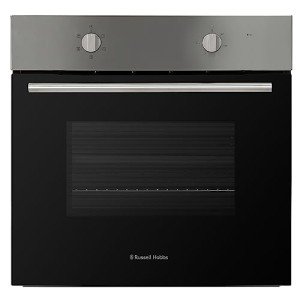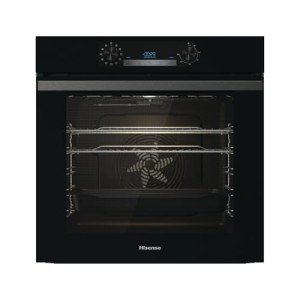You'll Never Guess This Built In Electric Oven's Tricks
페이지 정보
본문

The Comprehensive Guide to Built-in Electric Ovens and Hobs
In today's hectic world, modern-day kitchen appliances have actually evolved drastically to cater to the tastes and needs of contemporary homeowners. Among these appliances, built-in electric ovens and hobs stick out for their performance, design, and performance. This post explores the features, benefits, setup pointers, and maintenance of built-in electric ovens and hobs, along with resolving regularly asked questions.
Comprehending Built-in Electric Ovens
What Is a Built-in Electric Oven?
A built-in electric oven is a home appliance created to be installed into a wall or kitchen cabinetry, providing a seamless, integrated electric ovens appearance in the kitchen. Unlike freestanding ovens, built-in models save area and frequently come equipped with extra functions such as self-cleaning cycles, convection cooking, and numerous cooking modes.
Kinds Of Built-in Electric Ovens
- Single Ovens: Ideal for smaller sized kitchen areas or those who cook for fewer individuals.
- Double Ovens: Offer more cooking space, suitable for bigger families or those who entertain often.
- Mix Ovens: These consist of both a conventional oven and a microwave, providing flexible cooking alternatives.
Benefits of Built-in Electric Ovens
| Advantage | Description |
|---|---|
| Space-Saving Design | Fits flawlessly into cabinetry, releasing up counter area. |
| Improved Aesthetics | Creates a contemporary, expert kitchen look. |
| Versatile Cooking Options | Typically features numerous cooking modes including bake, broil, and convection. |
| Energy Efficient | Consumes less energy than conventional ovens. |
Understanding Built-in Hobs
What Is a Built-in Hob?
A built-in hob is a cooking surface area installed into the kitchen counter top, incorporating effortlessly with the kitchen design. Available in electric, induction, and gas ranges, electric hobs are renowned for their precision and ease of usage.
Kinds Of Built-in Hobs
- Electric Hobs: Traditional coil aspects that heat by means of electrical resistance.
- Induction Hobs: Use magnetic energy to heat just the cookware, making them quicker and safer.
- Ceramic Hobs: Feature a smooth surface area with glowing heat underneath, using easy cleansing.
Advantages of Built-in Hobs
| Advantage | Description |
|---|---|
| Quick Cooking Times | Electric hobs heat rapidly, minimizing overall cooking time. |
| Easy to Clean | Flat surface enables quick and simple cleansing. |
| Long lasting | Typically built to last and hold up against heats. |
| Versatile Compatibility | Works well with numerous cookware materials. |
Setup Considerations
Installing a built-in electric oven and hob requires mindful planning.

Steps for Installation
- Step the Space: Ensure the dimensions of the oven and hob match the assigned area in your kitchen.
- Examine Electrical Requirements: Consult an electrical expert to guarantee electrical wiring can manage the device's power needs.
- Positioning of Appliances: Position the oven at a practical height, typically in between waist and eye level.
- Ventilation: Ensure appropriate ventilation, particularly if your oven integrates a range hood.
Vital Tools
- Power drill
- Screwdrivers
- Level
- Determining tape
Safety Precautions
- Constantly disconnect the power before setup.
- Follow manufacturer instructions carefully.
- Consider hiring a professional for electrical connections.
Maintenance Tips
Maintaining built-in electric ovens and hobs is essential for Built In Electric Oven durability and efficiency.
Regular Care Routine
- Cleaning up the Surface: Use a soft cloth and manufacturer-recommended cleaner.
- Inspecting Electrical Connections: Check cables and plug for damages periodically.
- Cleaning Filters: If the oven has a ventilator, clean or change the filters as needed.
Fixing Common Issues
| Problem | Possible Solution |
|---|---|
| integrated oven Won't Heat | Check the power supply and heating component. |
| Heating Inconsistency | Inspect the thermostat and oven calibration. |
| Hob Not Heating | Make sure cookware is compatible and inspect the power supply. |
Often Asked Questions
1. How do I choose the right size built in ovens uk-in electric oven?
Selecting the ideal size involves measuring your kitchen space and considering just how much cooking you generally do. If you captivate regularly or have a large family, select a double oven.
2. Are built in electric oven (Www.haidong365.com)-in electric hobs safe to use?
Yes, built-in electric hobs are safe, built in electric oven particularly induction hobs which just warm the pots and pans, lowering the danger of burns.
3. Can I install a built-in oven and hob myself?
While it is possible for experienced DIY enthusiasts, working with an expert is recommended, particularly for the electrical connections.
4. How frequently should I clean my built-in oven and hob?
Cleaning up ought to be done frequently after usage, with deep cleaning periods depending upon cooking frequency - typically every couple of months.
5. Do built-in appliances require special upkeep?
built in ovens-in appliances require similar maintenance to freestanding models, but proper care must be taken with their surrounding cabinets.
Built-in electric ovens and hobs provide a combination of technology and style, offering performance and modern visual appeals to any kitchen. With correct choice, cautious setup, and routine maintenance, these appliances can enhance one's cooking experience for several years. Understanding the functions, benefits, and care requirements can empower house owners to create the kitchen of their dreams-- effectively and stylishly.
As kitchens continue to evolve into central centers of the home, selecting the best built-in services plays a crucial role in everyday cooking imagination and satisfaction.

